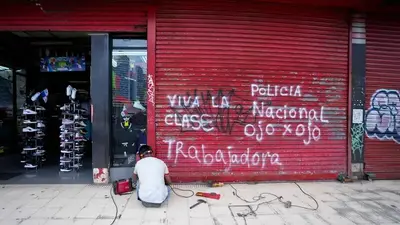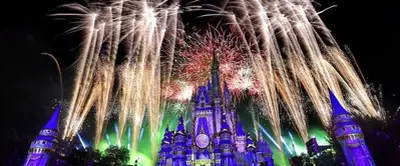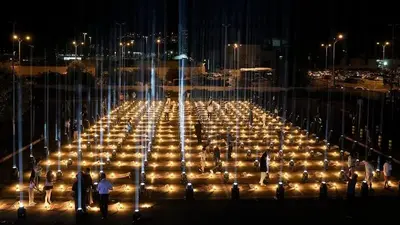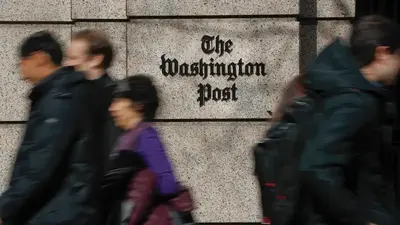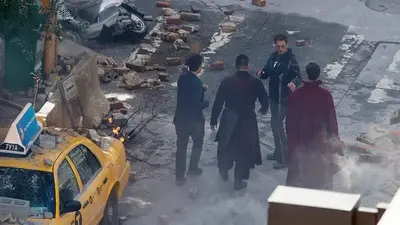Business
Battle rages in Ukraine town; Russia shakes up its military
KYIV, Ukraine -- The fate of a devastated salt-mining town in eastern Ukraine hung in the balance Wednesday in one of the bloodiest battles of Russia's invasion, while Ukraine's unflagging resistance and other challenges prompted Moscow to shake up its military leadership again.
Russian forces used jets, mortars and rockets to bombard Soledar in an unrelenting assault.
Soledar's fall, while unlikely a turning point in the nearly 11-month war, would be a prize for a Kremlin starved of good battlefield news in recent months. It would also offer Russian troops a springboard to conquer other areas of Donetsk province that remain under Ukrainian control, such as the nearby strategic city of Bakhmut.
Donetsk and neighboring Luhansk province, which together make up the Donbas region bordering Russia, were Moscow's main stated territorial targets in invading Ukraine, but the fighting has settled mostly into a stalemate.
In an apparent recognition of battlefield setbacks, Russia's Defense Ministry announced the demotion of the head of Russian forces in Ukraine after only three months on the job. Russia's top Military officer — the chief of the Military’s General Staff, Gen. Valery Gerasimov — was named as the replacement for Gen. Sergei Surovikin, who was demoted to deputy.
During his short time overseeing the troops in Ukraine, Surovikin was credited with strengthening coordination, reinforcing control and introducing a campaign to knock out Ukraine's public utilities as a pressure tactic. But he also announced a humiliating withdrawal in November from Kherson, the only regional center Russian forces had captured just weeks after the Kremlin illegally annexed the area. His demotion signaled that Russian President Vladimir Putin wasn’t fully satisfied with his performance.
Gerasimov, meanwhile, was seen as the top architect of the Russian invasion of Ukraine, and critics have blamed him for Moscow’s military setbacks.
Britain's Defense Ministry said putting Gerasimov in charge is “an indicator of the increasing seriousness of the situation Russia is facing, and a clear acknowledgement that the campaign is falling short of Russia’s strategic goals.” It added in a tweet that Russian ultra-nationalists and military bloggers critical of Gerasimov are likely to greet the news with “extreme displeasure.”
The Russian Defense Ministry's formal explanation was that expanded Military tasks and the need for “closer interaction between branches of the Military as well as increasing the quality of supplies and the efficiency of directing groups of forces” prompted the leadership changes.
On the battlefield, a Ukrainian officer, near Soledar, told The Associated Press the pattern is that first the Russians send one or two waves of soldiers, many from the private Russian military contractor Wagner Group, who take heavy casualties as they probe the Ukrainian defenses. When Ukrainian troops suffer casualties and are exhausted, the Russians send a fresh wave of highly-trained soldiers, paratroopers or special forces, said the Ukrainian officer, who insisted on anonymity for security reasons.
Ukrainian officials denied Russian claims that Soledar had fallen but the Wagner Group's owner repeated the assertion of a breakthrough late Wednesday.
“Once again I want to confirm the complete liberation and cleansing of the territory of Soledar from units of the Ukrainian army,” Yevgeny Prigozhin wrote on his Russian social media platform. “Civilians were withdrawn. Ukrainian units that did not want to surrender were destroyed." He claimed about 500 people were killed and that "the whole city is littered with the corpses of Ukrainian soldiers.”
Ukraine’s Military said late Wednesday Russian forces had suffered “huge losses” in the Soledar fighting.
The AP was unable independently to verify either side's claims.
Kremlin spokesman Dmitry Peskov stopped short of declaring the municipality's capture, telling reporters Russian forces had achieved “positive dynamics in advancing” in Soledar. “Let’s not rush, and wait for official statements,” he added.
Ukrainian President Volodymyr Zelenskyy weighed in Wednesday in his nightly video address: “Now the terrorist state and its propagandists are trying to pretend that some part of our city of Soledar - a city that was almost completely destroyed by the occupiers - is allegedly some kind of Russia’s achievement.” He said Ukrainian forces in the area are holding out against the Russians.
Soledar, known for salt mining and processing, has little intrinsic value but it lies at a strategic point 10 kilometers (six miles) north of the city of Bakhmut, which Russian forces want to surround.
Taking Bakhmut would disrupt Ukraine’s supply lines and open a route for the Russians to press toward Kramatorsk and Sloviansk, Ukrainian strongholds in Donetsk province.
Soledar’s fall would make “holding Bakhmut much more precarious for Ukraine,” Michael Kofman, the director of Russia Studies at the CAN nonprofit research group in Arlington, Virginia, noted.
The war of attrition, with heavy casualties, may make a Russian victory as deadly as a defeat.
“I don’t think the outcome at Bakhmut is that significant compared to what it costs Russia to achieve it,” Kofman said in a tweet.
The Wagner Group, which now reportedly includes a large contingent of convicts recruited in Russian prisons and constitutes up to a quarter of all Russian combatants in Ukraine, has spearheaded the attack on Soledar and Bakhmut.
Delivering victory in Soledar and Bakhmut after months of Russian frontline difficulties would help Prigozhin, who has criticized Gerasimov, increase his clout in what has emerged as somewhat of a rivalry with Russia's Military leadership.
Russian troops have struggled to gain control over Donetsk, Luhansk, Kherson and another Ukrainian province the Kremlin illegally annexed in September, after incorporating the Crimean Peninsula in 2014. When Russian forces withdrew from Kherson, the battle heated up around Bakhmut.
Putin identified the Donbas region as a focus from the war’s outset, and Moscow-backed separatists have fought there since 2014. Russia captured almost all of Luhansk during the summer. Donetsk escaped the same fate, and the Russian military subsequently poured manpower and resources around Bakhmut.
The Institute for the Study of War said Russian forces were up against “concerted Ukrainian resistance” around Bakhmut.
“The reality of block-by-block control of terrain in Soledar is obfuscated by the dynamic nature of urban combat ... and Russian forces have largely struggled to make significant tactical gains in the Soledar area for months,” the Washington-based think tank said.
An exceptional feature of the fighting near Bakhmut is that some has taken place around entrances to disused salt mine tunnels, which run for some 200 kilometers (120 miles), according to Western intelligence reports.
In other developments:
— Putin claimed Wednesday that Russia had successfully resisted Western pressure, especially sanctions, over its invasion of Ukraine and vowed that his country has enough resources to beef up its Military while continuing social programs. “Nothing of what our enemies forecast has happened,” Putin said in a video call with his Cabinet. “We will strengthen our defense capability and will undoubtedly solve all issues related to supplies to Military units involved in the special Military operation,” he said, using the Kremlin’s euphemism for the war. Reports have circulated that Russia is struggling to produce enough weapons, equipment and clothing for its troops battling in Ukraine.
— Polish President Andrzej Duda said his country is willing to send German-made Leopard tanks to help Ukraine as part of a larger international coalition. Duda spoke after meeting in Lviv with Zelenskyy, who said Ukraine needs tanks to win the war. In Britain, another staunch Ukraine ally, Prime Minister Rishi Sunak's spokesman said no final decision has been made whether to send tanks.
— The Russian and Ukrainian human rights commissioners agreed to swap more than 40 military prisoners, Turkey’s state-run Anadolu Agency reported. The two warring parties have exchanged prisoners multiple times, in one of the few areas of cooperation. Turkish President Recep Tayyip Erdoğan said his country has proposed establishing a corridor to bring the wounded to Turkey. "This is our humanitarian duty, our duty of conscience,” he said.
___
Monika Scislowska in Warsaw, Poland, and Yuras Karmanau in Tallinn, Estonia, contributed to this story.
Follow AP’s coverage of the war at https://apnews.com/hub/russia-ukraine
-

 Business4h ago
Business4h agoU.S. Antitrust Regulators Seek to Break Up Google, Force Sale of Chrome Browser
-
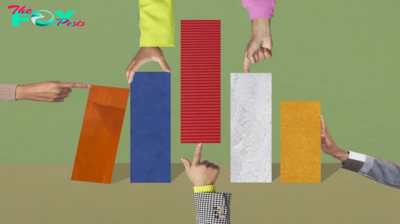
 Business4h ago
Business4h agoSuccessful White Men Alone Can’t Create America’s Economic Future
-

 Business9h ago
Business9h agoThe Rise of Silent Services
-

 Business20h ago
Business20h agoTim Latimer
-

 Business1d ago
Business1d agoCarbon offsets can help bring energy efficiency to low-income Americans − our Nashville data shows it could be a win for everyone
-

 Business1d ago
Business1d agoWorkplace diversity training programs are everywhere, but their effectiveness varies widely
-

 Business2d ago
Business2d agoFirm bosses urged to make use of Welsh language to revitalise rural economic system
-

 Business2d ago
Business2d agoDonor-advised funds are drawing a lot of assets besides cash – taking a bigger bite out of tax revenue than other kinds of charitable giving
